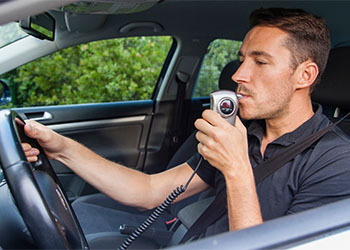Why Did I Fail the Breathalyzer Test if I Wasn't Drinking?
June 5, 2024
 A breathalyzer test functions as a primary tool for law enforcement to ensure road safety by identifying drivers under the influence of alcohol. However, what happens when you blow a positive result on a breathalyzer without having consumed a single drop of alcohol?
A breathalyzer test functions as a primary tool for law enforcement to ensure road safety by identifying drivers under the influence of alcohol. However, what happens when you blow a positive result on a breathalyzer without having consumed a single drop of alcohol?
Understanding how these devices work and why false positives can occur is crucial for every driver. Bretz Legal, LLC is here to help individuals understand breathalyzer tests, explore common reasons for inaccurate readings, and provide actionable advice should you find yourself in this situation.
Understanding How Breathalyzers Work
At its core, a breathalyzer is designed to measure the amount of alcohol present in one's breath, which is then used to estimate blood alcohol concentration (BAC). While the technology behind these devices is quite sophisticated, it is not infallible.
Various external factors, including certain foods, medications, and medical conditions, can influence the test results into being wrong.
BAC Levels in Missouri
In Missouri, as in many states, the legal limit for driving under the influence (DUI) is a blood alcohol concentration (BAC) of 0.08% for most drivers. However, for commercial drivers, the threshold is lower, at 0.04%.
It's important to note that Missouri has a zero-tolerance policy for drivers under the age of 21, meaning any detectable amount of alcohol in their system can result in DUI charges. Understanding the specific BAC limits is essential for any driver within the state to ensure they remain compliant with local laws and avoid the legal ramifications of a DUI charge.
Common Reasons for a False Positive Breathalyzer Test
Several unexpected culprits can lead to a false positive reading on a breathalyzer. Here are a few you might not have considered:
Use of certain medications. Some over-the-counter and prescription medications contain levels of alcohol that can be detected by breathalyzer tests. Mouthwashes, cough syrups, or other liquid medications are typical examples that could skew the results.
Consumption of certain foods or drinks. It might sound odd, but certain foods and drinks can ferment in your mouth, producing alcohol as a by-product. Bakery products with yeast, ripe fruits, or even sugar-free gums with specific sweeteners might trigger a false positive.
Medical conditions. Some medical conditions, such as diabetes or acid reflux, can alter your metabolism or produce chemicals in your body that breathalyzers interpret as alcohol. In these cases, your body's chemistry, not your consumption behavior, might be to blame.
Possibility of a faulty breathalyzer. Though less common, there's always a chance that the breathalyzer itself was malfunctioning. Equipment can fail or provide inaccurate readings if not properly calibrated and maintained.
What to Do If You Believe You've Received a False Positive
If you find yourself in the unsettling position of failing a breathalyzer test despite not consuming any alcohol, it is crucial to act methodically to protect your rights and challenge the accuracy of the result.
Here are steps you can take:
Communicate clearly: Immediately inform the officer conducting the test about any substances you've ingested that could have influenced the test outcome, such as medications, certain foods, or health conditions.
Request a blood test: Politely ask for a blood alcohol test to confirm your BAC levels accurately. Blood tests are significantly more reliable and can serve as critical evidence in your defense.
Inquire about the device’s calibration: Ask when the breathalyzer was last calibrated and maintained. The device's accuracy depends on regular calibration, and records of its maintenance can be essential in disputing the test result.
Seek legal assistance: Early consultation with a legal advocate with experience in DUI/DWI cases can make a considerable difference. A knowledgeable attorney can guide you through contesting a DUI charge and help in gathering evidence that supports your case.
Taking these steps can aid in effectively challenging a false positive result and minimizing the potential legal and personal repercussions.
Preventing Future False Positives
While some scenarios are out of your control, being aware of the factors that can affect breathalyzer tests is vital. If you're on medication or have existing health conditions, consider carrying documentation with you when driving. Additionally, understanding how long alcohol can remain detectable in your system can help you make more informed decisions about driving after consuming alcoholic beverages.
Fight for Your Rights
Breathalyzer tests are a key component of road safety measures, yet they are not beyond reproach. Knowing why these tests might not always be accurate and how to respond if you find yourself facing a false positive is crucial for any driver.
If you're in a situation where legal advice is needed, consider reaching out to Bretz Legal, LLC, where your story is heard and your rights are aggressively defended. Stay informed, stay safe, and always advocate for your rights on the road.
